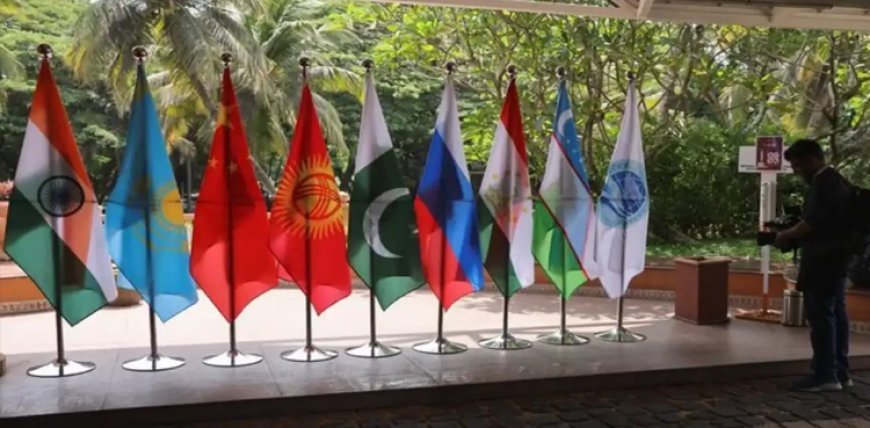Which Countries Are Participating in the Shanghai Cooperation Organization 2024 Summit
This composition will explore which countries are sharing in the SCO 2024 peak, when and where the peak is set to take place, and what to anticipate from this major event in terms of crucial conversations and implicit issues.

Preface
The Shanghai Cooperation Organization (SCO) is one of the most important and influential indigenous associations in the world. It plays a significant part in shaping the geopolitical, profitable, and security geography of Asia and beyond. With member countries ranging from important nations like China and Russia to rising indigenous powers such as India and Pakistan, the SCO has grown in elevation since its conformation in 2001. Every time, the periodic SCO peak serves as a platform for agitating crucial issues related to security, tactfulness, trade, and indigenous cooperation.
The 2024 peak is anticipated to be another critical moment for member countries and spectators alike as they gather to address pressing global and indigenous challenges.
Understanding the SCO A Detail Overview
Origins and Evolution of the SCO
The SCO was innovated in 2001 in Shanghai by the leaders of six countries: China, Russia, Kazakhstan, Kyrgyzstan, Tajikistan, and Uzbekistan. Still, its roots date back to the mid-1990s, with the formation of the Shanghai Five, a group that concentrated on resolving border controversies and fostering security cooperation. Over time, the objects of the association expanded to include cooperation in profitable, artistic, and political spheres.
Core objects of the SCO
The SCO's primary objects include
Strengthening indigenous security by addressing terrorism, unreasonableness, and racism.
Promoting profitable cooperation between member states through trade, energy cooperation, and structure development.
Encouraging political dialogue and collaboration on transnational issues like climate change, food security, and epidemic response.
Fostering artistic exchange to make a sense of solidarity and collective understanding across the different SCO regions.
SCO Member Countries and actors in 2024
The Shanghai Cooperation Organization has grown significantly since its commencement, with eight full members, four bystander countries, and several dialogue mates. There's a breakdown of who'll be sharing in the 2024 SCO peak.
Full Members of the SCO (2024)
As one of the founding members and a crucial power in the association, China plays a central part in the SCO’s political, profitable, and security dockets. Beijing uses the SCO platform to make stronger ties with its neighbors and strengthen indigenous stability.
Russia, another launching member, sees the SCO as a vital association for maintaining its influence in Central Asia and fighting Western geopolitical influence. Russia’s participation in the SCO also complements its broader foreign policy strategy.
India became a full member of the SCO in 2017 and has been an active party in its summits since also. India views the association as a precious platform for security cooperation and profitable collaboration with its Asian neighbors.
Pakistan Also getting a full member in 2017 alongside India, Pakistan plays a critical part in indigenous security issues, particularly with its involvement in anti-terrorism enterprise within the SCO frame.
Kazakhstan is a crucial Central Asian member of the SCO and has been involved in the association since its founding. The country views the SCO as essential for indigenous stability and profitable development, particularly through enterprises like the Belt and Road Initiative (BBRI).
Kyrgyzstan Kyrgyzstan is another important Central Asian member that sees the SCO as an avenue for promoting security and profitable cooperation, particularly with its larger neighbors, China and Russia.
Tajikistan Tajikistan’s class in the SCO helps it address cross-border security enterprises, especially regarding unreasonableness and terrorism. The country has long-standing profitable and secure ties with other SCO members, particularly Russia and China.
Uzbekistan has played an important part in the SCO since getting a launching member in 2001. The country focuses on using the SCO for indigenous security collaboration and fostering profitable growth, including increased cooperation on trade routes and structure systems.
Observer States sharing in the 2024 Summit
Iran was elevated to the status of full member in 2023, after times of being a bystander. This change reflects the growing influence of the SCO and Iran's increasing interest in Asian indigenous security and profitable cooperation.
Afghanistan Afghanistan, as a bystander state, has a vested interest in indigenous security issues addressed by the SCO. Although the country’s political geography remains unpredictable, it has been shared in conversations related to counterterrorism and stability in Central Asia.
Belarus Belarus has been an active bystander in the SCO and is frequently involved in conversations related to profitable collaboration. The country is also a close supporter of Russia and participates in SCO summits to enhance its political and profitable ties with member countries.
Mongolia has bystander status in the SCO and attends summits to maintain profitable and political connections with its neighbors, especially Russia and China. Mongolia’s position makes it a strategic player in Central Asian affairs.

Dialogue mates
The SCO also has a number of dialogue partners, countries that engage with the association on specific issues without being full members or spectators. These mates include countries like Turkey, Sri Lanka, and Azerbaijan, which share in specific conversations at the summits, generally around trade, structure, and indigenous cooperation.
When and Where Is the 2024 SCO Summit Taking Place?
The exact dates for the 2024 SCO peak haven't yet been perfected, but it's traditionally held in the middle of the time, frequently between June and September. The peak rotates its position among member countries, with each country taking turns to host.
For 2024, the peak is anticipated to be hosted by Kazakhstan, as the country was preliminary listed to host the peak. The last peak, held in 2023, took place in India and was an important cornerstone in advancing indigenous cooperation on issues ranging from terrorism to profitable development.
The 2024 peak in Kazakhstan will probably continue these conversations, with the added significance of addressing global challenges similar to the ongoing impacts of the COVID-19 epidemic, energy cooperation, and the added geopolitical pressures involving major powers like the United States, China, and Russia.
Key Issues Anticipated to Be Bandied at the 2024 SCO Summit
1. Regional Security and Counterterrorism
One of the core operations of the SCO since its commencement has been to address issues related to terrorism, unreasonableness, and racialism. At the 2024 peak, member countries will probably continue to concentrate on counterterrorism strategies, particularly in light of the evolving situation in Afghanistan and rising pitfalls from radical groups across Central Asia.
Given the ongoing insecurity in Afghanistan following the U.S. pullout, the SCO’s part in securing the region has taken on new urgency. Countries like China, Russia, and India are likely to push for further coordinated security measures, intelligence sharing, and support for indigenous stability enterprises.
2. Economic Cooperation and Structure Development
Another crucial docket point will be profitable cooperation, particularly in the areas of structure development, energy cooperation, and trade integration. The SCO has decreasingly deposited itself as a platform for promoting large-scale systems similar to China’s Belt and Road Initiative (BBRI).
The 2024 peak will probably feature conversations on expanding indigenous connectivity through investments in structures like roads, railroads, and energy channels. Kazakhstan, as the host country, is anticipated to emphasize the significance of energy cooperation, as it remains a crucial supplier of oil and natural gas to other SCO member countries.
3. Climate Change and Environmental Sustainability
With the world scuffling with the goods of climate change, the 2024 SCO peak will probably include conversations on how member states can unite on environmental issues. Countries like China and India, which face severe environmental challenges, may propose collaborative fabrics for addressing issues like air pollution, water operations, and renewable energy.
4. Expansion of SCO Membership
The SCO has continued to grow since its commencement, and the 2024 peak may see further expansion or deeper engagement with its bystander countries and dialogue mates. Iran was granted full class in 2023, and there has been enterprise about other countries, similar to Turkey and Afghanistan, seeking stronger places in the association.
The possibility of new countries joining the SCO as either full members or spectators will probably be a key content at the peak, as the association seeks to expand its influence on the global stage.
5. Navigating Global Geopolitics
The 2024 peak will take place against the background of rising geopolitical pressures between the United States, Russia, and China. As the SCO includes both China and Russia, two of the most important countries challenging U.S. global influence, the peak will be nearly watched for signs of how these countries plan to coordinate their foreign programs.
Russia’s involvement in the ongoing conflict in Ukraine and China’s rising pressures with the U.S. over Taiwan and trade issues are likely to be laterally addressed during the peak, especially in conversations about the future of global multipolarity.
Conclusion
The significance of the 2024 SCO Summit
The 2024 Shanghai Cooperation Organization (SCO) Summit is shaping up to be a critical meeting for member countries and the broader transnational community. With a growing list of member countries, including new actors like Iran, the peak will be an essential platform for diving indigenous security, profitable integration, and political challenges.
As the world’s attention turns to the peak in Kazakhstan, the conversations among the SCO members will probably have far-reaching counter accusations for global stability, profitable cooperation, and the unborn direction of Asia’s geopolitical geography. The peak will give a window into how China, Russia, and other crucial players in the region plan to navigate an increasingly complex and connected world.
Also Read This Article: Senator Markwayne Mullin Height What It Means in the World of Politics



















